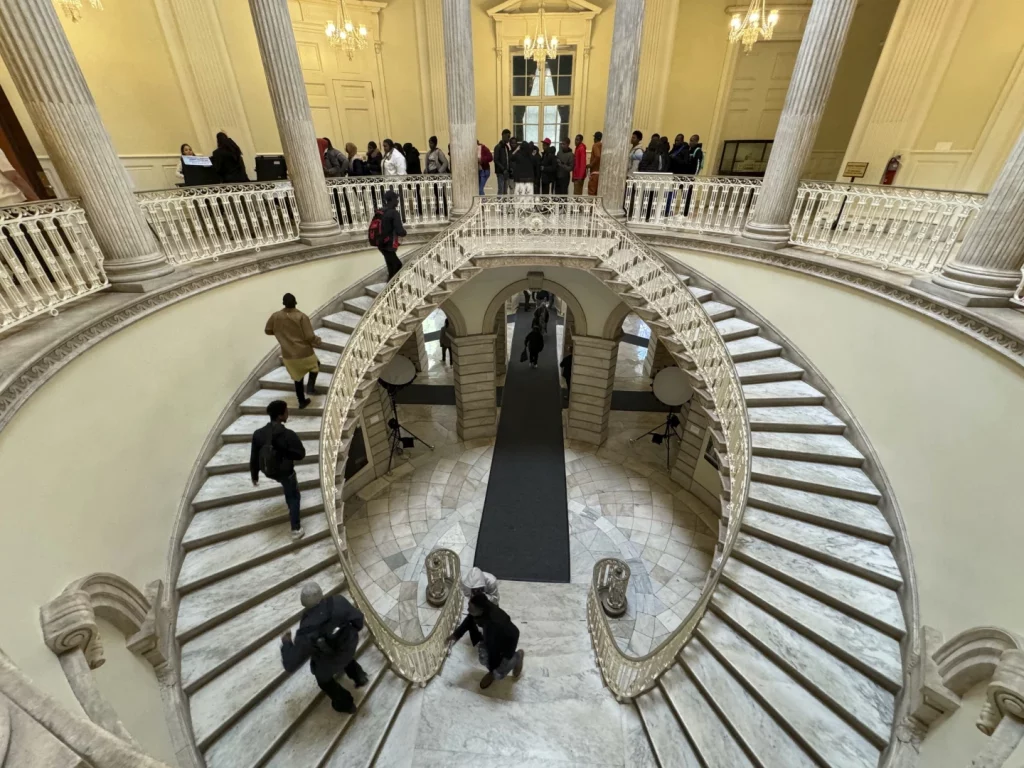In a show of solidarity and advocacy, Black immigrants from various backgrounds converged near New York City Hall to bring attention to systemic racial, religious, and language inequities within the city’s shelter and immigrant support systems. Despite being scheduled to accommodate only a fraction of attendees, over 1,500 immigrants, predominantly from Guinea, gathered in City Hall Park during a hearing focused on racial disparities.
The City Council deliberated on proposals aimed at addressing these issues, including initiatives to enhance data collection on migrants accessing city services and urging the federal government to eliminate or reimburse immigration application fees. Council members emphasized the urgency of collecting accurate data, citing evidence that Black migrants often face barriers such as being turned away from shelters, lack of language support, and inadequate religious accommodations.
City officials acknowledged the challenges faced by African migrants, noting that they are frequently less prioritized for shelter space, particularly those without children. Legal settlements allow for the eviction of adult migrants after 30 days in shelters, posing additional risks for vulnerable individuals. Language interpretation services were provided during the hearing in Wolof, Haitian Creole, Arabic, French, Fula, and Bambara, highlighting the diverse linguistic needs of the immigrant community.
While asylum-seekers await work permits for up to six months, certain migrant groups receive expedited processing. President Joe Biden’s recent executive actions granting indefinite immigration protection to Venezuelans and expanding protections for Haitians have provided relief to some. However, migrants from countries like Guinea, Senegal, and Mauritania are excluded from these measures, despite facing similar challenges.
The rally underscored the critical role of community support and advocacy in addressing the multifaceted needs of Black immigrants in New York City. Despite facing complex legal and bureaucratic hurdles, immigrants like Diogo Diallo, a Guinean video editor, remain hopeful for change. Diallo, seeking asylum and navigating the shelter system, emphasizes the urgent need for accelerated work permits to gain financial independence and stability.
As Black immigrants continue to mobilize for equitable treatment and access to resources, the rally serves as a poignant reminder of the ongoing struggles and resilience within the immigrant community.


